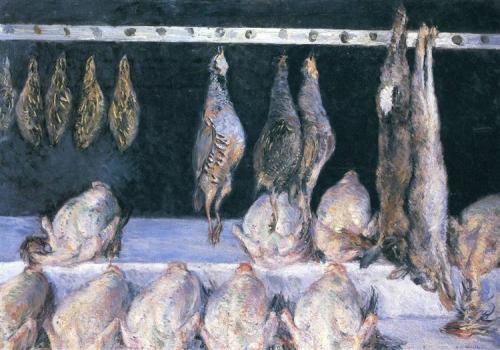“Approaching the 45th American Presidency” – Stephen T. Berg

“Display Of Chickens And Game Birds“ (c. 1882)
__________
a poem should always be read at least
twice, once for its content, then once
again for its style, which is where you
get the real magic
much as you’d stop to smell a rose
also a poem should be read out loud,
for even more magic, not to mention
more understanding
the following poem, from again the
Westender, verily bristles with invention,
it uses every hue of a rich grammatical
palette from resonant onomatopoeia to
lilting alliteration, by way of touches of
hyphens for accent, an incidental,
confidential set of parentheses,
capitalized words, italics, among an
array of other playful literary devices
I love especially its “chicken” refrain,
which anchors it as a poem, asserting
its proud, however unassuming,
pedigree
I love, as well, “gelid giblets“
Richard
psst: the links in the poem are mine,
couldn’t find a “Drumpf Meats“
____________________
Approaching the 45th American Presidency
I leave Planet Earth Poetry at the Hillside Coffee
after listening to an enjambment of poets,
fervently consider the current state of the American presidency,
and on my way home remember I need to prepare and marinate
the chicken for tomorrow night’s dinner,
that’s the chicken
I bought from Drumpf Meats earlier in the day that I thought (although
I didn’t ask) was fresh-fresh, but was in fact alternatively-fresh,
as I found remnant formations of ice crystals in the cramped cavity,
and the oblique neck, stuffed within, was polar-stiff,
and the gelid giblets, notably the orange-hued heart, was glacial-cold,
meaning this or more: that the bird hadn’t come straight from the abattoir
to its place behind glass, but had spent time in cryogenic rime
and I remembered too,
that a chicken
can live without its head for an ungodly duration,
which beyond all reason,
made me approach the fridge
with unimpeachable apprehension.


